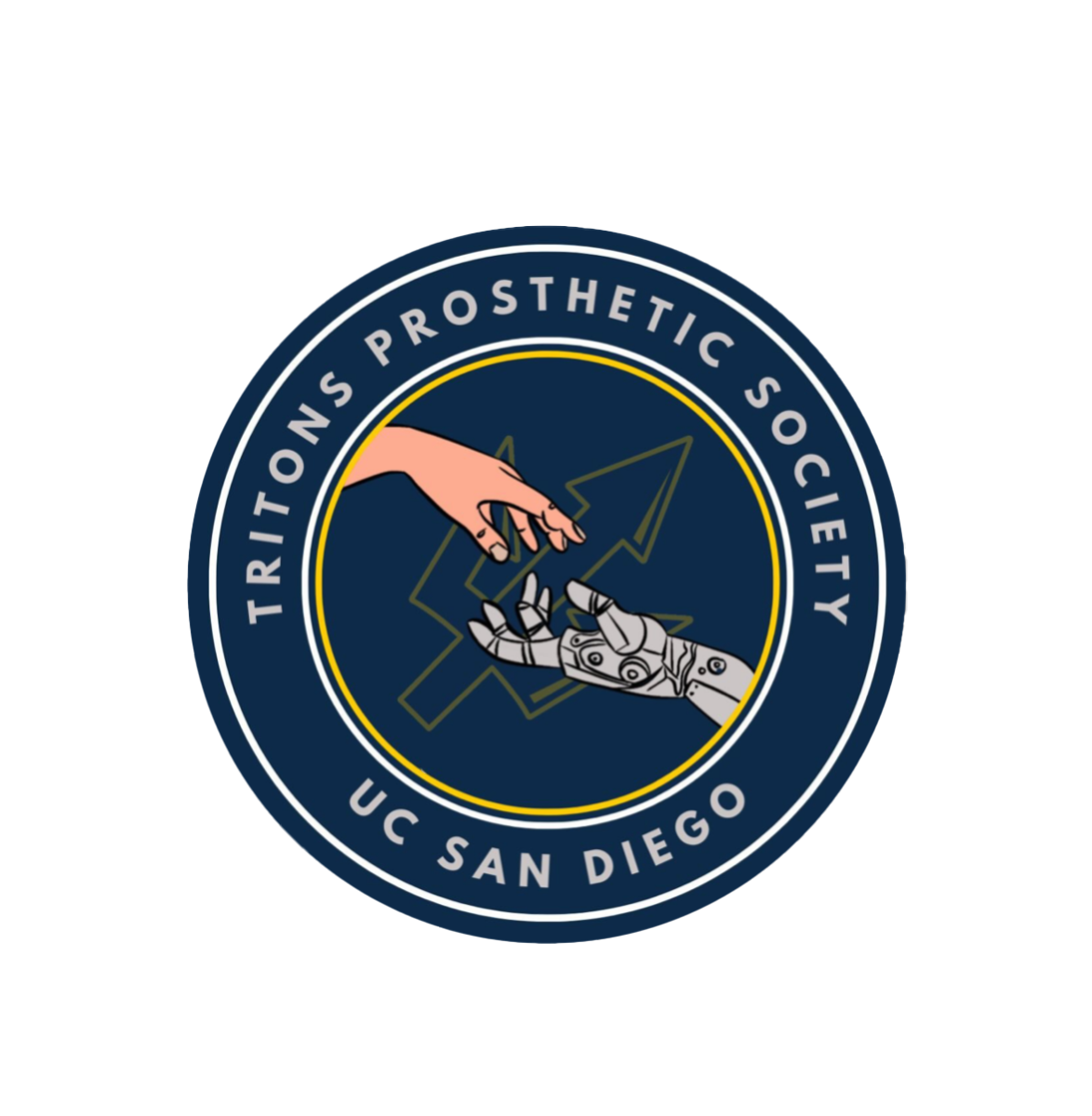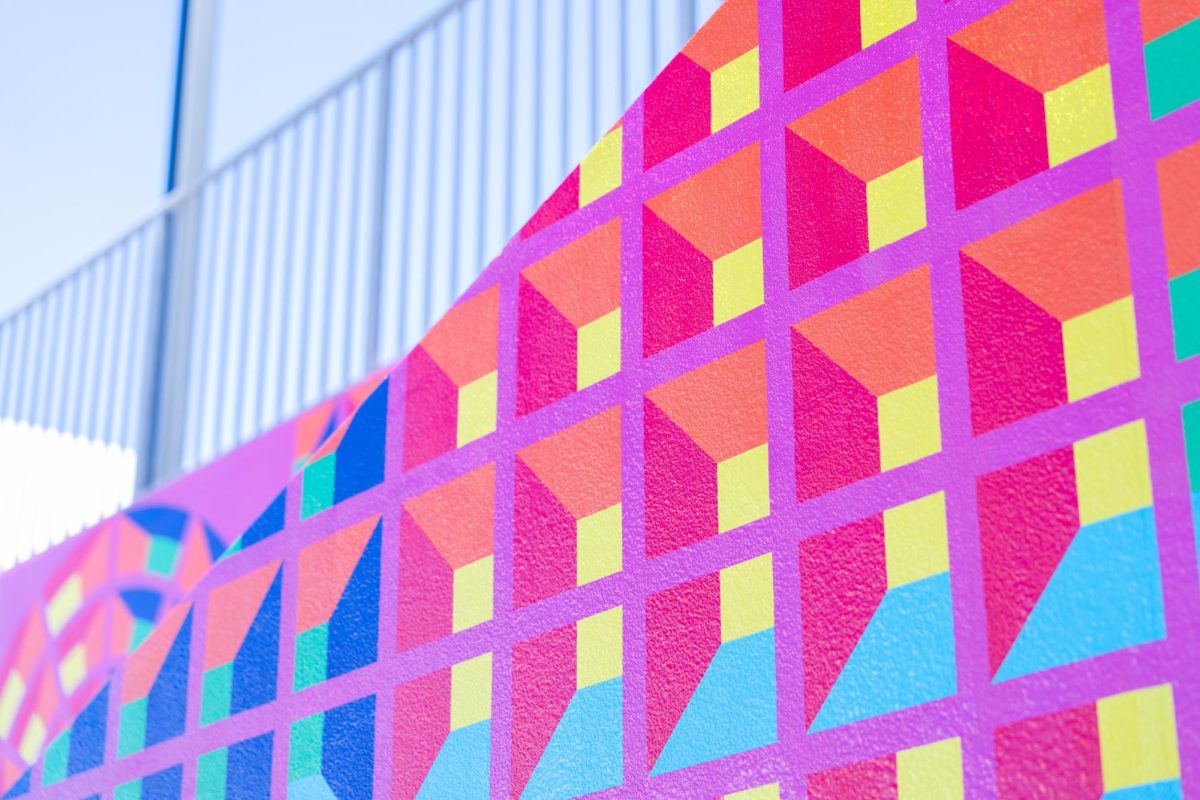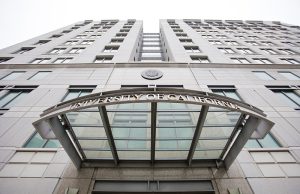APIMEDA Resource Center Approved for 2024
Photo by www.apimeda.ucsd.edu/ UCSD Guardian
May 29, 2023
A resource center for the Asian Pacific Islander Middle Eastern Desi American Programs and Services has been approved to be created and moved into a physical space on the UC San Diego campus in 2024.
The APIMEDA Programs and Services supports students of Asian, Pacific Islander, and Southwest Asian/North African descent. It was born from students advocating for the formation of these programs and services to assist these populations.
“Developed after strong student advocacy, APIMEDA Programs and Services provides outreach, programs, and other support that centers the needs and identities of our diverse APIMEDA student population,” wrote Associate Director of APIMEDA Programs and Services Windi Sasaki in an email to The UCSD Guardian.
Currently, the program helps new students adapt to college life by, for example, connecting them with mentors and providing educational seminars and professional development opportunities, Sasaki wrote. The new center would also allow for collaborations with programs like Counseling and Psychological Services and the Career Center and act as a space for students to feel connected to the program’s services.
“This new center will be an even bigger beacon of support, a physical space that will invite students to connect and learn in a welcoming environment,” Sasaki said.
Hela Khalil, an Earl Warren College freshman and second-generation Iraqi-American who identifies as Middle Eastern, stated that she could see the resource center offering workshops, networking events, cultural events, and holiday celebrations, as well as a place for students to study or connect with one another. She also hopes to see collaborations with cultural organizations on campus.
“Soft skill workshops, resume workshops, cover letter workshops, connection networking events, but also cultural events would be cool,” Khalil said. “It also could serve as a cool place to chill out. I’ve gone to the women’s center and just studied; it’s just very relaxing and safe.”
On its website, the APIMEDA Program explains its goal to educate the campus about APIMEDA people in the U.S.. As such, Khalil shared her hope that an APIMEDA resource center would lead to more representation, recognition, and support for Middle Eastern and North African students.
“MENA students are not adequately represented on campus … The school never recognizes Arab American heritage month, but they recognize other cultural heritage months,” Khalil stated. “They never say anything about Ramadan or Eid. A resource center would be able to stand up for the MENA students and be able to more adequately represent and include them in the cultural life of the school.”
Revelle College sophomore Yale Huang, who is Chinese, feels this resource center will also be positive for Asian-American students because they do not have access to many resources related to their ethnic background.
“UCSD doesn’t offer a lot of Asian-specific resources, even though 30-some percent of its students are Asian-American,” Huang said. “APIMEDA is a great step in the right direction to making our minority students feel more represented and comfortable in this space, especially those with Pacific Islander, Middle Eastern, or Desi backgrounds, as those are often underrepresented even in minority spaces.”
According to Sasaki, the creation of a resource center will contribute to UCSD’s designation as an Asian American and Native American Pacific Islander-serving institution, similar to its designation as a Hispanic-Serving institution. This will make the University eligible for federal grants to address the needs of the aforementioned populations. This, coupled with the production of a centralized space, will allow the APIMEDA Program to provide a broader range of services to students, faculty, and staff.
“A center space will enhance the network of student support services, expand culturally-relevant programming, offer professional development to faculty and staff who serve these populations and more,” Sasaki explained.
The center will not be newly constructed but will instead move into a building that currently exists on campus, Sasaki noted. While a space has not yet been chosen, Chancellor Pradeep Khosla has approved the process to search for one. In the meantime, UCSD will communicate with students, staff, and faculty to address any questions, concerns, or comments they may have.
“The university will consult with students and the broader UC San Diego community to take their needs, interests, and ideas into consideration as we move forward,” Sasaki said.
Accordingly, some students do have concerns about the APIMEDA program and its services, such as Huang, who feels there is potential for issues with the many different ethnic groups grouped together into one program.
“The only thing that makes me slightly hesitant is that they’ve lumped a large group of disparate cultures together, and I’m not sure how they will navigate the differences between those groups,” Huang said.
Still, Huang felt hopeful that the center will act as a space where students will feel safe and connected to other students.
“[The center will offer] a place where students are comfortable expressing their identity, surrounded by other students who share similar cultures and interests,” they expressed. “I hope that such a space will allow underrepresented students to see themselves reflected in campus culture and feel more connected to the UCSD campus overall.”
For Khalil, resource centers can be extremely important for universities and the broader academic community. She expressed her belief that an APIMEDA resource center would be a positive addition to the campus.
“It’s a really integral and important part of the campus, and I think UCSD implementing [an APIMEDA] resource center can serve as a model for other public or private universities,” Khalil said. “UCSD is doing great things, [but] there can always be more that can be done.”
She went on to explain further that she would support more resource centers being developed in the future, with funding taken out of students’ tuition if need be.
“The school should strive to create as many resource centers on campus as they can. I do think that they actually help students and give them the support that they need,” Khalil said. “As a paying student, I’m glad to see my money going to all kinds of resource centers even if I’m not directly a part of that group myself.”
Sasaki explained that while the program has plans to hire staff, they are limited in their understanding of details beyond that.
“We will … hire a full-time director to lead the center. Further details on timing remain fluid.”
Editor’s Note: This article was updated on 6/2/2023 at 10:27 a.m. to correct a misinterpretation of how the creation of a resource center would contribute federal grants to the University.
















